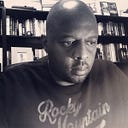The Invisible Lines: From Katrina to California’s Flames — A Story of Climate Justice, Racial History, and Hidden Heroes
In the shadow of the San Gabriel Mountains, Altadena stands as a testament to both resistance and refuge. This unincorporated community in Los Angeles County, with its oak-lined streets and historic homes, tells a story that resonates deeply with the broader narrative of environmental justice, disaster response, and racial equity in America. When Hurricane Katrina devastated New Orleans in 2005, it revealed patterns of institutional neglect and systemic inequality that would later echo in California’s relationship with natural disasters — particularly in how communities of color face both heightened vulnerability and diminished support.
Altadena: A Historical Haven
Altadena’s history as a haven for African Americans dates back to the early 20th century, when discriminatory housing practices throughout Los Angeles County pushed Black families toward this foothill community. Unlike many other areas, Altadena became one of the few places where African Americans could own property and build communities without restrictive covenants. This history of refuge takes on new meaning when we consider today’s environmental challenges, as climate disasters disproportionately impact communities of color — from the Lower Ninth Ward of New Orleans to the wildfire-prone regions of California.
The Pattern of Disaster Response
The parallels between Hurricane Katrina and California’s wildfire crisis reveal a disturbing pattern. In both cases, communities with the least resources often face the greatest risks, while simultaneously receiving the most delayed and inadequate disaster response. This pattern is particularly visible in how emergency services are distributed and how recovery resources are allocated. Just as Katrina exposed the deep racial and economic fissures in American society, California’s wildfires illuminate similar disparities in who bears the burden of climate change and who receives protection.
The Hidden Heroes in Orange
Perhaps nowhere is this inequality more starkly visible than in California’s reliance on incarcerated firefighters. These individuals, earning mere dollars per day, form a crucial backbone of the state’s firefighting force. They work alongside professional firefighters, facing the same dangers and performing the same lifesaving work, yet their contribution remains largely invisible to the public they protect. This practice connects directly to broader patterns of racial inequality — given the overrepresentation of people of color in the criminal justice system — and raises profound questions about how society values different forms of labor and different human lives.
The Legacy of 2020 and Unfulfilled Promises
The racial justice movement of 2020 prompted unprecedented pledges of support for addressing systemic inequalities. Yet much of this promised funding remains unutilized or misdirected. The connection between these unused resources and the ongoing exploitation of incarcerated firefighters highlights a broader failure to translate moments of national awareness into lasting structural change.
A Path Forward: Beyond Recognition to Reform
Real transformation requires several interconnected steps:
- Immediate Policy Reform
- Implement comprehensive sentence review processes for incarcerated firefighters
- Create clear, accessible pathways to professional firefighting careers post-release
- Establish fair compensation standards for incarcerated firefighters
- Remove licensing barriers that prevent formerly incarcerated firefighters from pursuing careers in emergency services
- Community Investment
- Direct unused racial justice funds toward communities most impacted by environmental disasters
- Support the development of local disaster preparedness infrastructure in vulnerable areas
- Invest in preventative measures that protect at-risk communities before disasters strike
- Create sustainable mutual aid networks that can respond quickly to community needs
- Systemic Change
- Reform the criminal justice system’s approach to emergency response labor
- Address the underlying inequities that make certain communities more vulnerable to climate disasters
- Develop inclusive emergency response strategies that consider all community voices
- Create accountability measures for institutions managing disaster response resources
The Altadena Model: A Blueprint for Change
Altadena’s history as a refuge for African Americans offers a model for how communities can resist systemic inequality while building resilience. Today, this community stands at the intersection of multiple challenges: wildfire threat, racial justice, and economic inequality. Its story demonstrates both the persistent patterns of environmental injustice and the possibility of community-based solutions.
Beyond the Viral Moment
The crisis of California’s wildfires, like Hurricane Katrina before it, reveals deep structural inequities in American society. The solution lies not in temporary viral attention or political posturing, but in sustained commitment to systemic change. This means recognizing and fairly compensating all our firefighters, including those who are incarcerated. It means activating frozen funds and directing them toward meaningful community support. Most importantly, it means acknowledging that these “natural” disasters are actually human stories — stories of communities, families, and individuals who deserve not just emergency response, but lasting justice and support.
As climate change intensifies and natural disasters become more frequent, the lessons of Katrina, the history of places like Altadena, and the story of our incarcerated firefighters must guide us toward a more equitable and just approach to emergency response and community protection. The time for performative solidarity has passed. What we need now is action — action that recognizes all our heroes, supports all our communities, and reforms the systems that perpetuate inequality in times of crisis.
Tony Clark is a Professor of African American Literature, Principal of The T.Clark Group, and Co-Founder and Co-President of The My Brother’s Keeper, Task Force, Cambridge.
